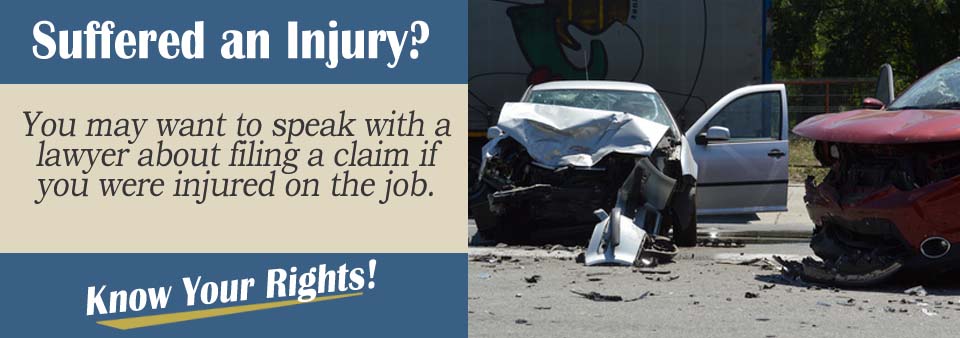If you travel for work, you could face a situation where you are injured in an auto accident while engaging in work-related activity, such as traveling to meet a client or going to another job site. If you are on the job, and you suffer a work-related injury, you are covered by workers’ compensation. So, if you are injured at work, your injuries are work-related.
If you are in a car accident while traveling for work-related reasons, you might be covered by workers’ compensation as well. Examples of work-related travel that warrants workers’ comp coverage includes making deliveries, running an errand for your employer or supervisor, transporting another employee for work reasons, you are a professional driver who drives for a living, you travel for your job and don’t have a fixed office, and you are paid by your employer for your time traveling to and from your home.
Filing a Workers’ Compensation Claim and Personal Injury Claim
Generally, you can’t receive workers’ compensation benefits for a crash that happened while you were just simply commuting to or from work. But there are a few exceptions.
If you were on your way to work and you had to stop to get office supplies, then you were in a crash, you might be eligible to get workers’ compensation benefits. There is a potential to receive workers’ compensation benefits and, also bring a personal injury claim against another driver.
This is true only if a third-party – another driver – was at fault for the crash. You can receive compensation for your medical bills, pain and suffering, and other losses caused by the crash. You will file a third-party claim directly with the other driver’s insurance company.

The Claims Process
You will first file a workers’ compensation claim according to the legal process to do so in your state. You will file the initial paperwork with the state agency or start a claim with the state workers’ compensation board.
You will file a personal injury claim against the other driver through the civil court. There are different damages that might be recovered from each. In a workers’ compensation claim, you will only be compensated for your medical bills and your lost wages up to set maximum allowable amounts.
While you cannot get pain and suffering from a workers’ compensation claim, you can from a personal injury claim. For your personal injury claim, you must show the other driver was at fault. You can receive workers’ compensation benefits regardless of who was to blame.
Workers’ compensation claims require you to notify your employer immediately – within 30 to 90 days of the incident depending on state laws. A personal injury claim has a statute of limitations that usually range from one to three years.
Consult With a Personal Injury Lawyer
If you have been injured in a work-related car crash, consult with a personal injury attorney. You need a lawyer who handles workers’ compensation claims and accident injury claims in your state. You have nothing to lose, so complete the Free Case Evaluation Form today!